Derms Agree—These Noncomedogenic Moisturizers Make the Biggest Difference for Acne-Prone Skin
Who knew it was this simple?


Learning how to curate the best product lineup for your skin type is one of the skincare challenges that's not talked about enough, but also happens to be a universal experience. Whether your first not-so-great experience with using a skincare product was when you were a tween who didn't know the first thing about shopping for toners and oils, or just recently decided to revamp your skincare collection after experiencing a change in skin type, knowing what works best doesn't have to be hard.
One of the biggest culprits behind breakouts is oil (which also happens to be one of the most popular ingredients lurking in your skincare cabinet). Switching to a noncomedogenic moisturizer with oil-free formulas made the biggest difference in the appearance and feel of my skin after a cross-country move to New York City and experiencing hot temperatures, subway air, and other major environmental aggressors for the first time. If you're not sure what it means for a product to be noncomedogenic, you're not alone. Below, I'm breaking down the skincare term with guidance from two board-certified dermatologists and learning all about their dos, don'ts, and top product recommendations.

What does noncomedogenic mean?
According to board-certified dermatologist Lauren Penzi, MD, FAAD, products that are noncomedogenic are formulated to be less likely to clog pores and cause acne. "These products usually lack potentially occlusive [ingredients] that can clog pores and cause comedones, which is a type of acne. Think blackheads and whiteheads. Products labeled as noncomedogenic typically undergo testing or a formulation process to ensure that they do not contain ingredients known to clog pores or promote acne," Penzi says. Products that fall into this category are the best match for individuals who have oily or acne-prone skin.
While noncomedogenic formulas can make a difference in the health and appearance of all skin types, those with oily, sensitive, and acne-prone skin will reap the most benefits from them, as pores can easily become clogged, which leads to breakouts. That said, identifying the ingredients that can upset the balance of your skin can prove challenging for anyone without helpful guidance from experts. These ingredients include oils, alcohols, acids, butters, propylene glycol, and lanolin, which stop the skin barrier from operating the way it should. Alternately, noncomedogenic formulas often include nourishing and lightweight ingredients like salicylic acid, benzoyl peroxide, and sulfur in addition to light oils.
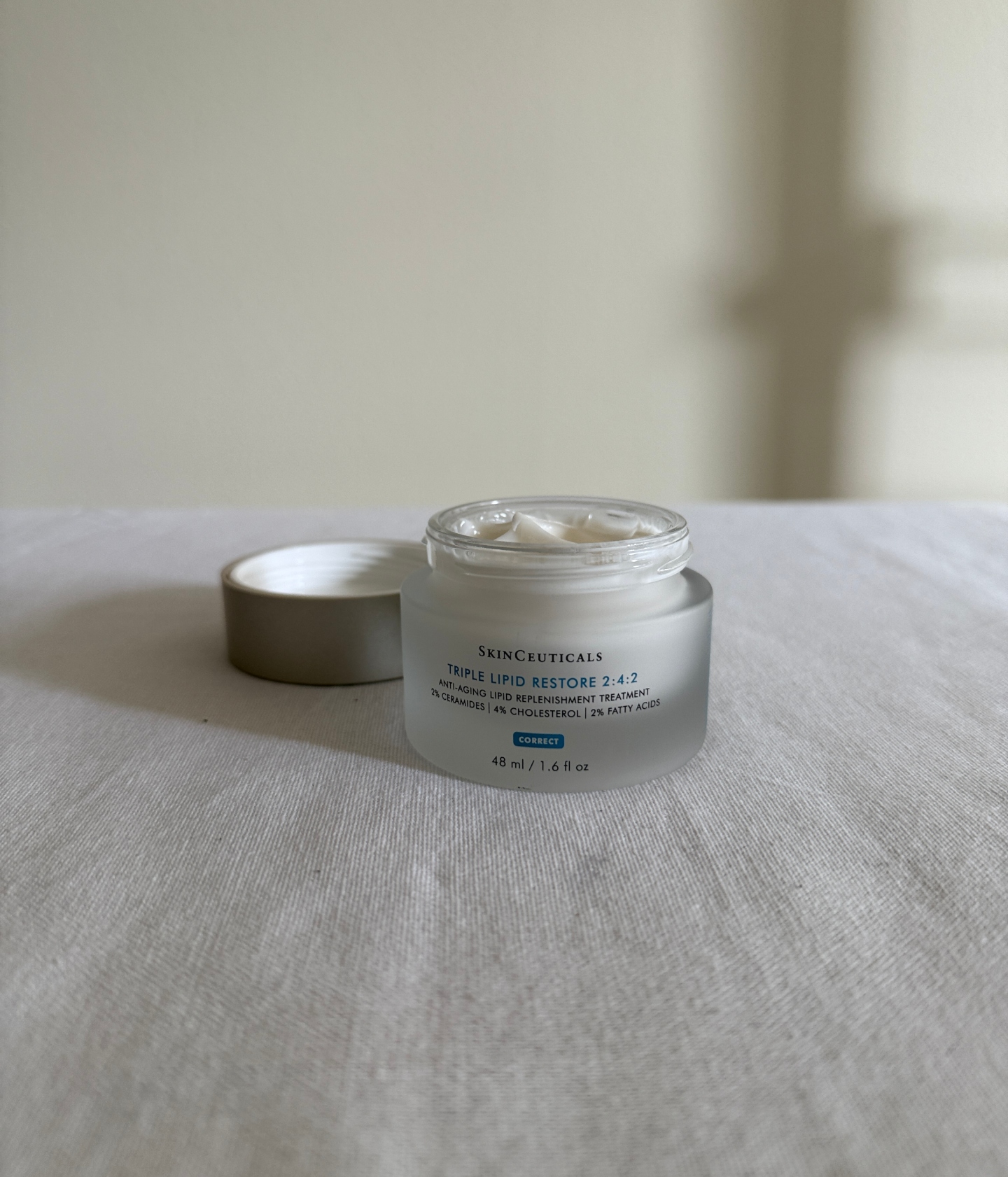
What are the best formulas for oily skin?
While shopping for the best noncomedogenic moisturizers, Penzi favors formulas with hydration-boosting ingredients that help the skin retain moisture and reinforce the skin barrier without clogging pores, like hyaluronic acid, glycerin, ceramides, and niacinamide. "Be sure to avoid comedogenic oils like coconut oil. Also, avoid heavy occlusive ingredients like petrolatum," she warns. There are other ingredients to steer clear of if you have acne-prone skin, as these are the main culprits for breakouts, irritation, and redness.
What shouldn't be in your moisturizer? Azadeh Shirazi, MD, says it's best to avoid ingredients that form a film on the skin's surface, like silicone derivatives. "Avoid fragrances, mineral oil, lanolin, shea butter, or comedogenic oils like coconut oil," explains Shirazi. It's also important to remember that everyone's skin reacts differently to certain ingredients. Shea butter and silicones, for example, are frequently used in moisturizers that can be too heavy or cause a reaction for some skin types, but others may experience no visible reaction that could compromise the health of the skin barrier.
If you have sensitive skin and would like to avoid any run-ins with ingredients that could irritate the skin, start by choosing a moisturizer formulated without any of these ingredients and testing it on the back of your hand. If you're ready to see which noncomedogenic formulas both Penzi and I recommend to anyone looking to level up their moisturizer game, keep scrolling for our top picks.
Best Noncomedogenic Moisturizers, Listed
- Best Overall: SkinCeuticals Triple Lipid Restore 2:4:2
- Best for Acne-Prone Skin: La Roche-Posay Toleraine Double Repair Face Moisturizer
- Best Lightweight Formula: CeraVe Ultra-Light Moisturizing Lotion SPF 30
- Best for Boosting Hydration Levels: Neutrogena Hydro Boost Water Cream
- Best for Reducing Irritation: Chantecaille Oil Free Balancing Moisturizer
Best Overall: SkinCeuticals Triple Lipid Restore 2:4:2
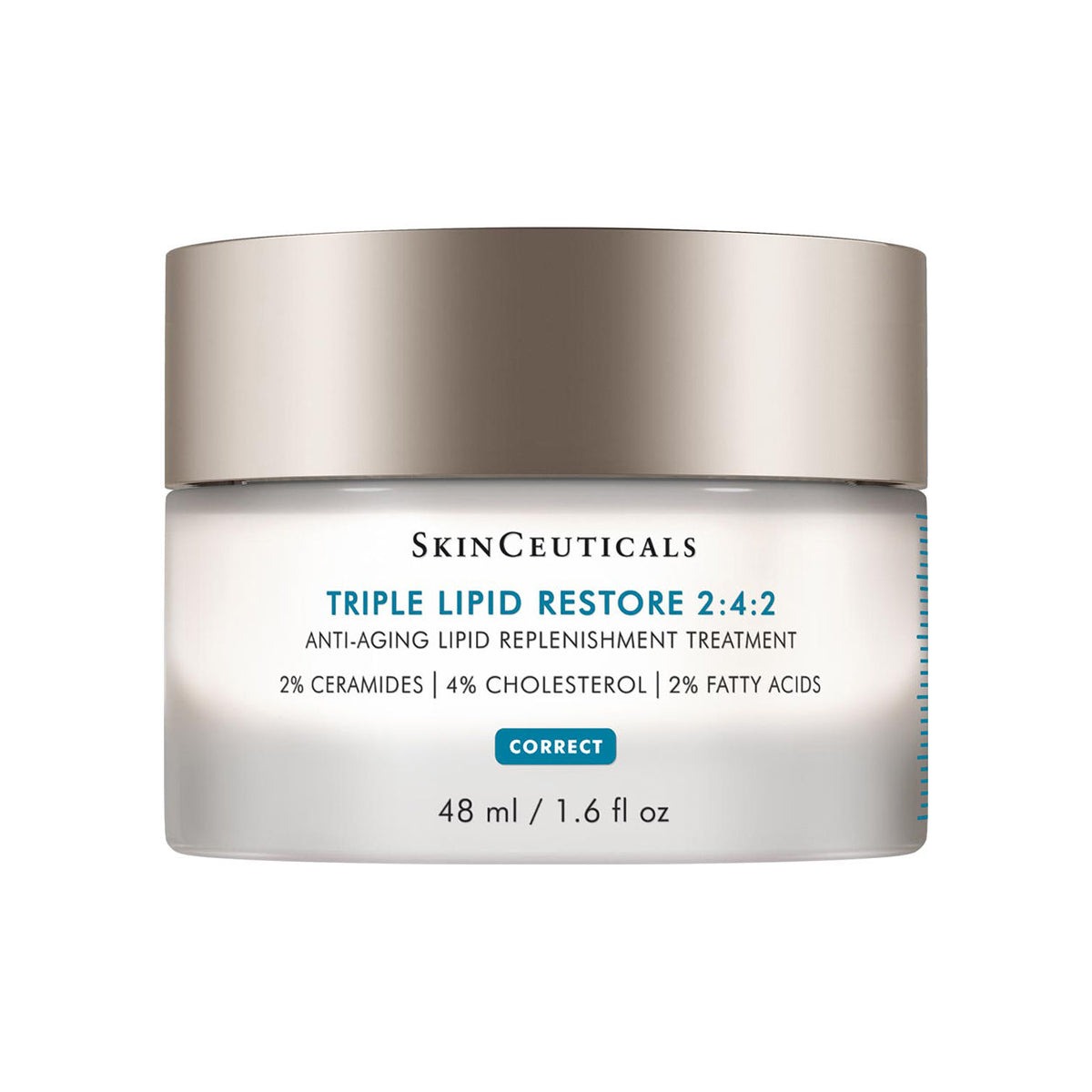
This anti-aging facial treatment is formulated with a skin-revitalizing composition of three essential lipids (natural cholesterol, pure ceramides, and fatty acid) as well as vitamin E for natural cell repair and production and essential oils to fight free radical damage. Not only will this moisturizer help restore the skin's essential lipids, but it will also improve its fullness and texture.
Customer Review: "The older I get the more sensitive and unpredictable my skin becomes. Triple Lipid Restore has really helped my overall complexion. My skin improved little by little over the first few weeks and then one day I looked in the mirror and saw a very noticeable difference. It was it's usual dry dull appearance. My face looked moisturized, nourished and healthy. I'm very happy with the results."
Pros: Combats sigs of aging (fine lines, wrinkles, and uneven texture)
Cons: Offered at a luxury price point
Size: 1.6-ounce jar
Product Details: Oil-free, unscented cream
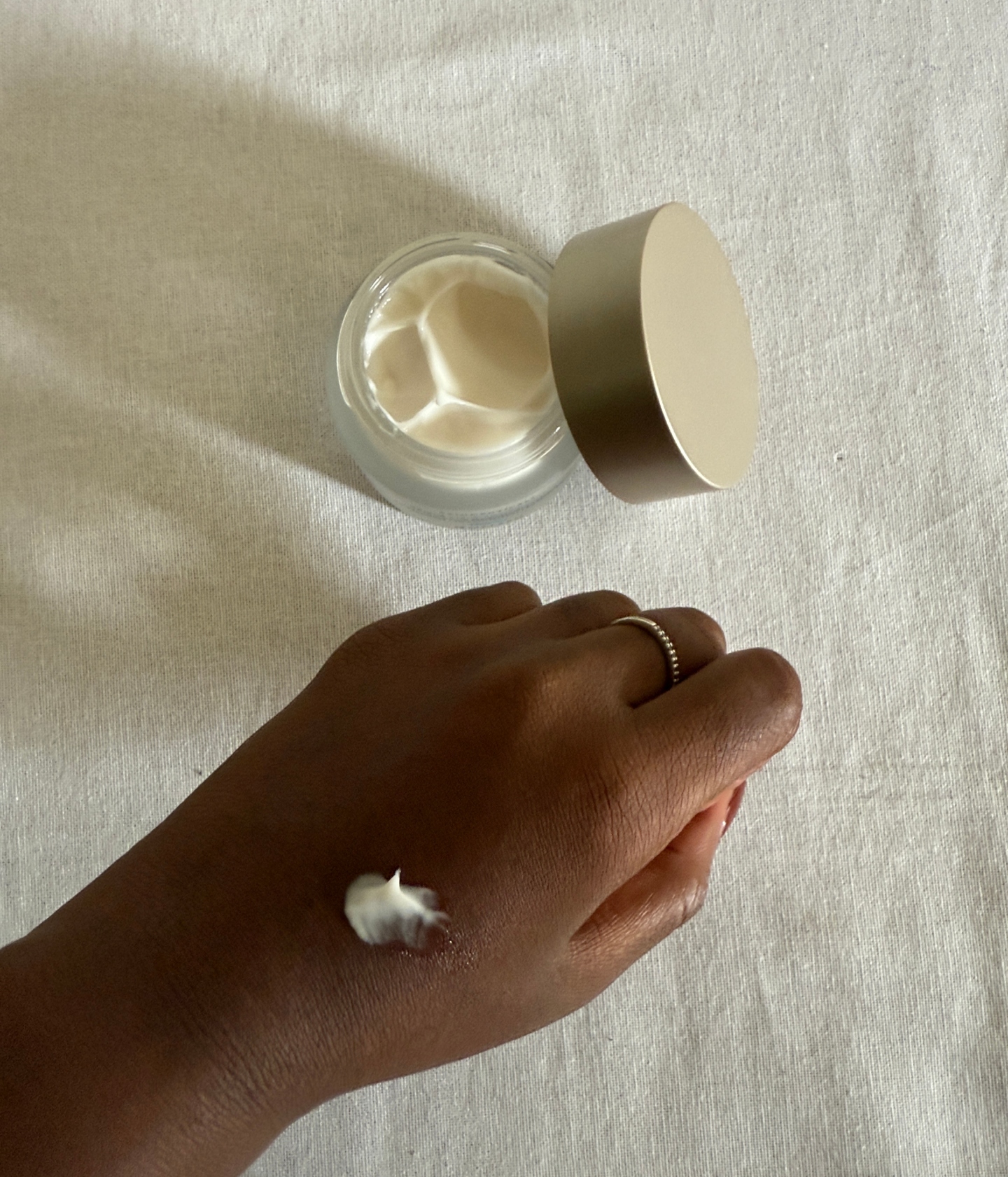
Associate beauty editor Maya Thomas tests the SkinCeuticals Triple Lipid Restore 2:4:2.
Best for Acne-Prone Skin: La Roche-Posay Toleraine Double Repair Face Moisturizer
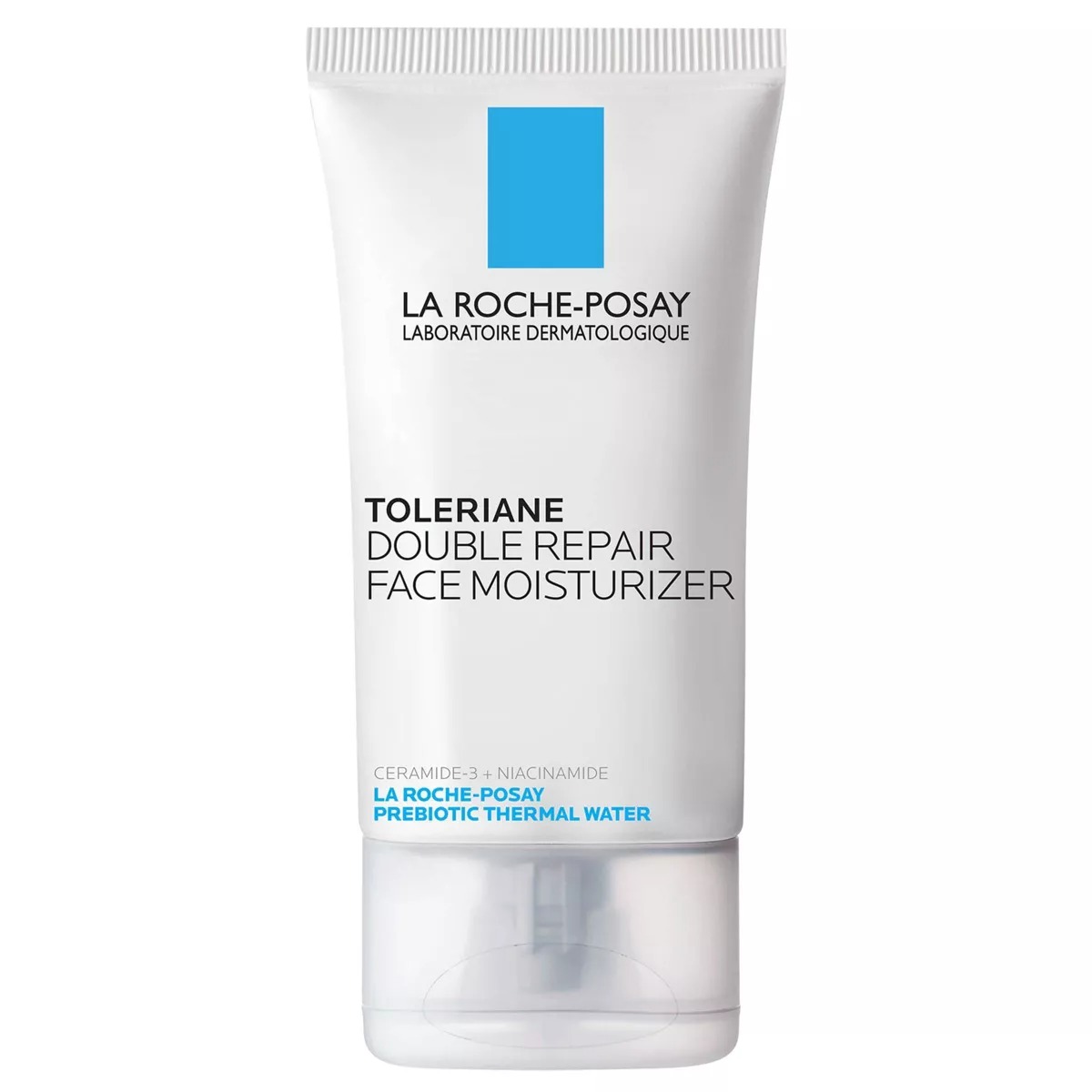
Acne-prone skin benefits the most from moisturizers that use lightweight formulas with gentle active ingredients. One of my favorites is the Toleraine Double Repair Face Moisturizer, which uses dermatologist-recommended ingredients such as ceramide-3, niacinamide, glycerin, and La Roche-Posay's prebiotic thermal water to repair the skin's natural protective barrier after an hour. Plus, you get two days of hydration in every application.
Customer Review: "This moisturizer is a holy grail for sensitive, acne-prone skin like mine. It's lightweight, non-greasy, and instantly soothes dryness and irritation without clogging pores. I love that it's fragrance-free and packed with ingredients like ceramides and niacinamide that actually help repair and strengthen the skin barrier. It layers perfectly under makeup and never causes breakouts. If you struggle with redness, sensitivity, or just want a simple but effective daily moisturizer, this is 100% worth it."
Pros: Provides up to 48 hours of hydration while repairing the skin's moisture barrier
Cons: None
Size: 1.35-ounce and 3.38-ounce tubes
Product Details: Oil-free, unscented cream
Best Lightweight Formula: CeraVe Ultra-Light Moisturizing Lotion SPF 30
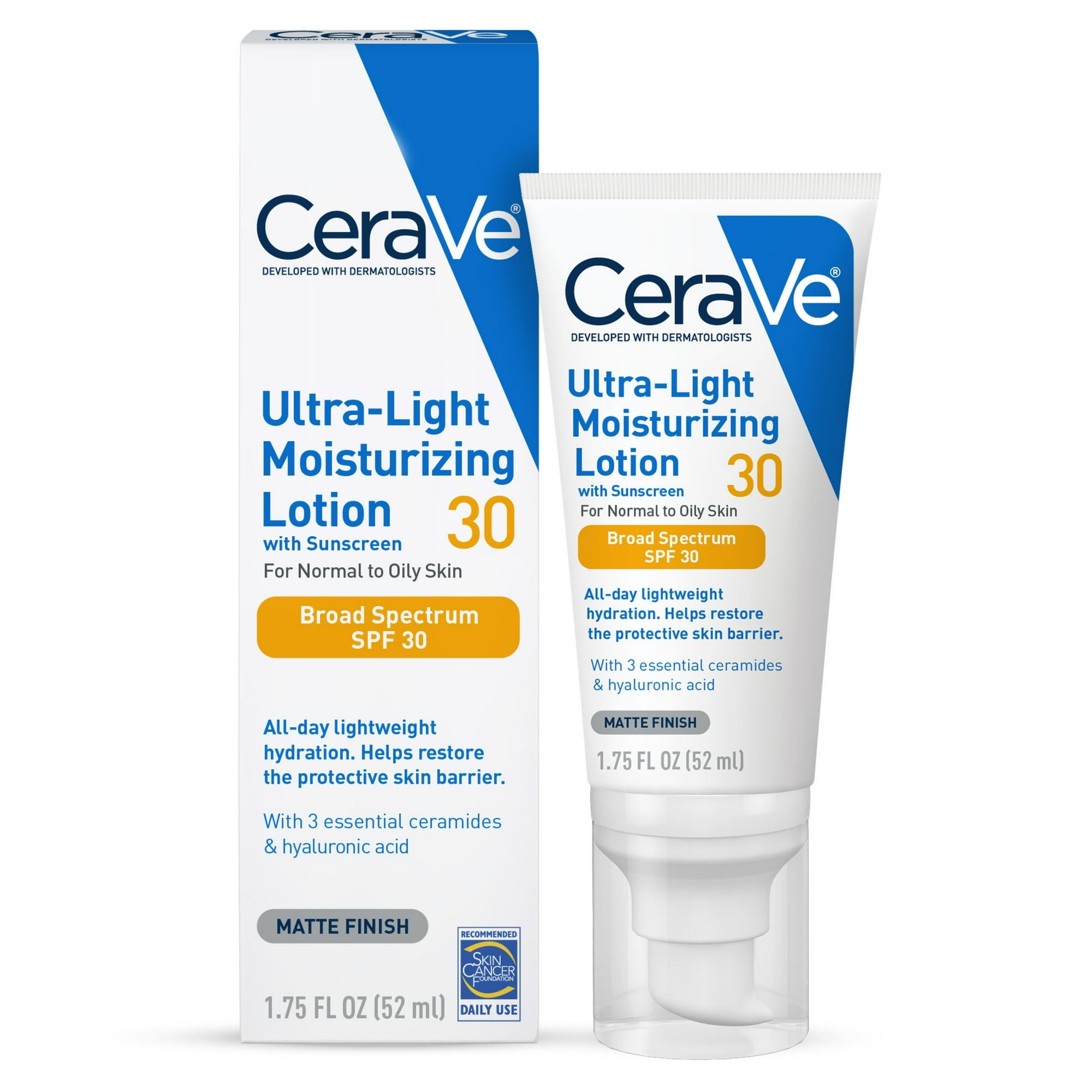
If you've been looking for a noncomedogenic moisturizer at an affordable drugstore price, consider giving the CeraVe Ultra-Light Moisturizing Lotion a try. "This lightweight, noncomedogenic moisturizer with sunscreen is a great everyday pick. It is not heavy and features ingredients like hyaluronic acid and ceramides that help the skin retain its natural moisture and restore the skin's barrier," Penzi tells me. It's also worth noting that it blends beautifully with all skin tones.
Customer Review: "I have been wearing this sunscreen everyday for the last few years and get compliments on my skin all the time. I have combination to oily skin but this really balances me out and is simple skincare. My go-to! I have tried many moisturizers with SPF trying to find one I liked. Compared to others, this one is so light and absorbs quickly. And [it's] oil-free too!"
Pros: Ideal for acne-prone and sensitive skin with SPF 30 sun protection
Cons: None
Size: 1.75-ounce tube
Product Details: Oil-free, unscented cream
Best for Boosting Hydration Levels: Neutrogena Hydro Boost Water Cream
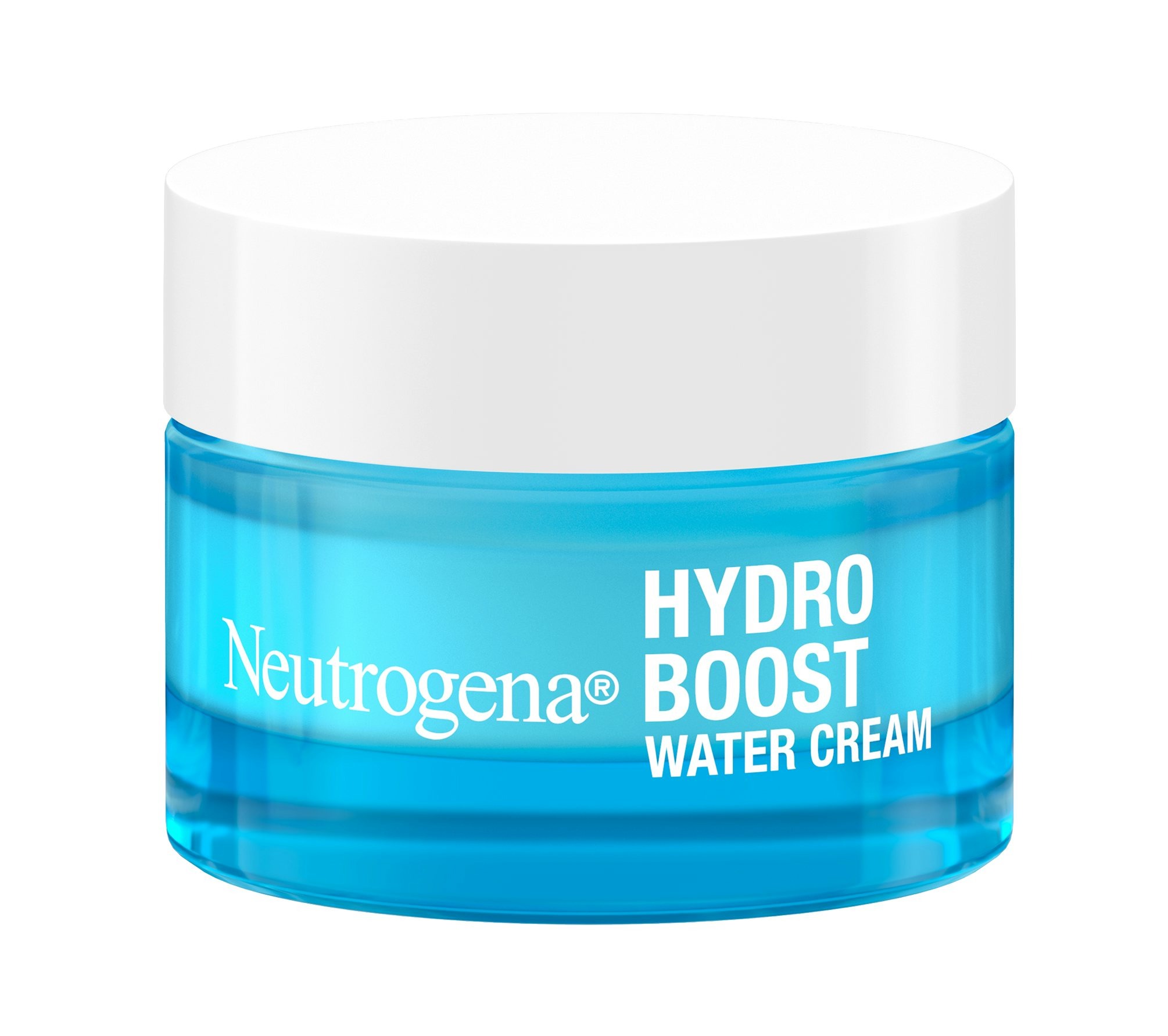
Penzi also recommends this lightweight, creamy moisturizer for individuals with acne and sensitive skin since it promotes resilient, glowing skin with a myriad of fast-working and gentle ingredients. In addition to replenishing vital water content on the skin's surface, it leaves skin looking refreshed and plump. Its key ingredient of hyaluronic acid not only promotes hydration but also locks it in for days.
Customer Review: "The results I've noticed after three weeks of using this are truly amazing. My skin has never been this soft or smooth. I've also noticed the darkness under my eyes has drastically changed, which I was not expecting. This should be a staple in everyone's skin care routine especially in the winter months!"
Pros: Formulated with hyaluronic acid to provide 72 hours of hydration
Cons: None
Size: 1.7-ounce jar
Product Details: Oil-free, unscented cream
Best for Skin-Barrier Repair: Dieux Instant Angel Lipid Rich Facial Moisturizer
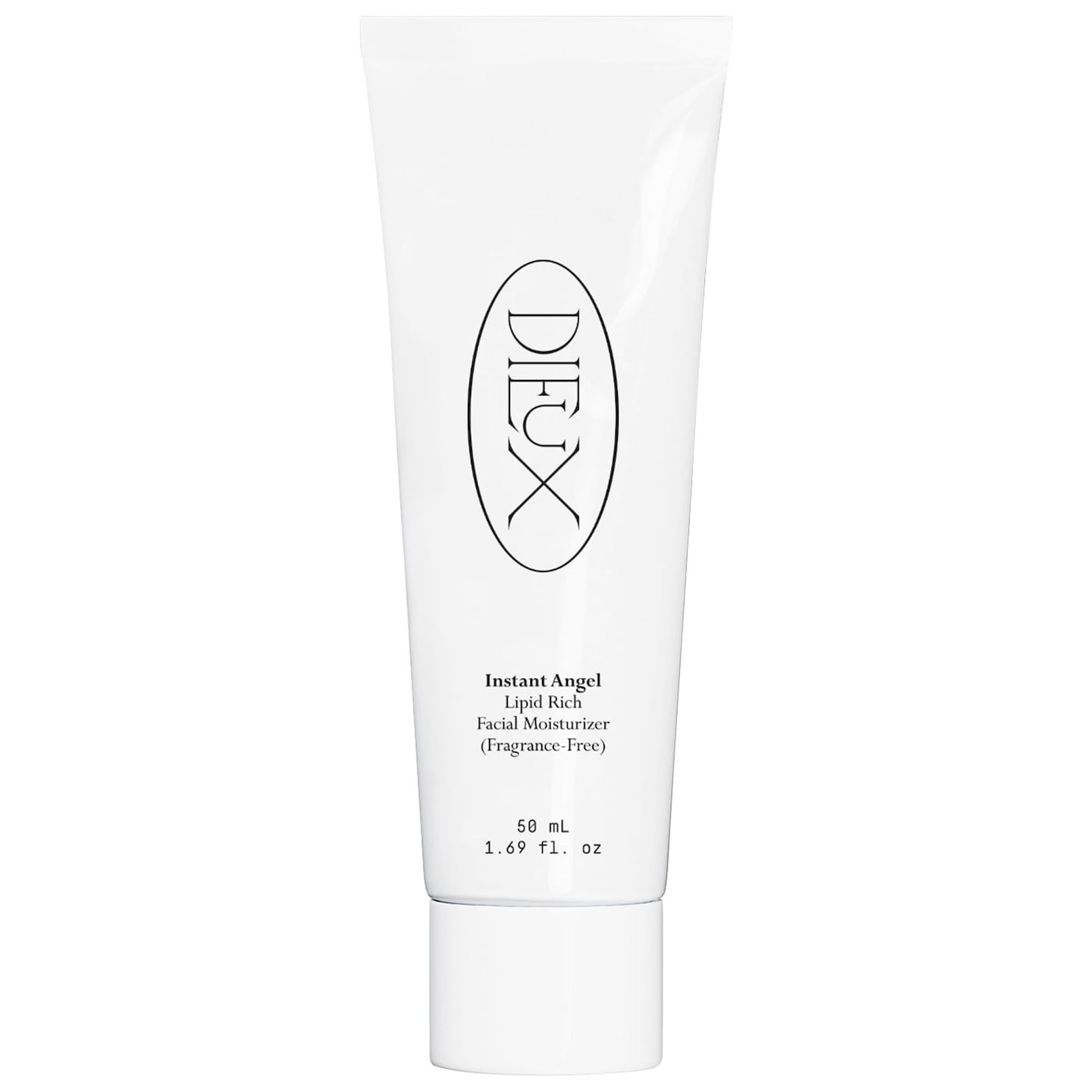
One of the compliments I receive the most is that my skin looks pillow soft. I use this best-selling Dieux moisturizer to flush the skin hydration and add a plumping effect that leaves my complexion looking dewy and fresh. Its quick-absorbing, barrier-replenishing formula smooths fine lines and wrinkles with a combination of lipids, ceramides, and a patented advanced moisture complex.
Customer Review: "I have oily skin and use this on my no-make up days to keep my face hydrated without making it more oily. It works like a dream, has no scent and a little goes a long way. I plan on using this in the colder months before bed as well to keep prevent dry patches."
Pros: Blends seamlessly into the skin and layers well under makeup
Cons: None
Size: 1.7-ounce and 3.3-ounce tubes
Product Details: Unscented cream formula
Best for Moisture Retention: EltaMD AM Restore Moisturizer
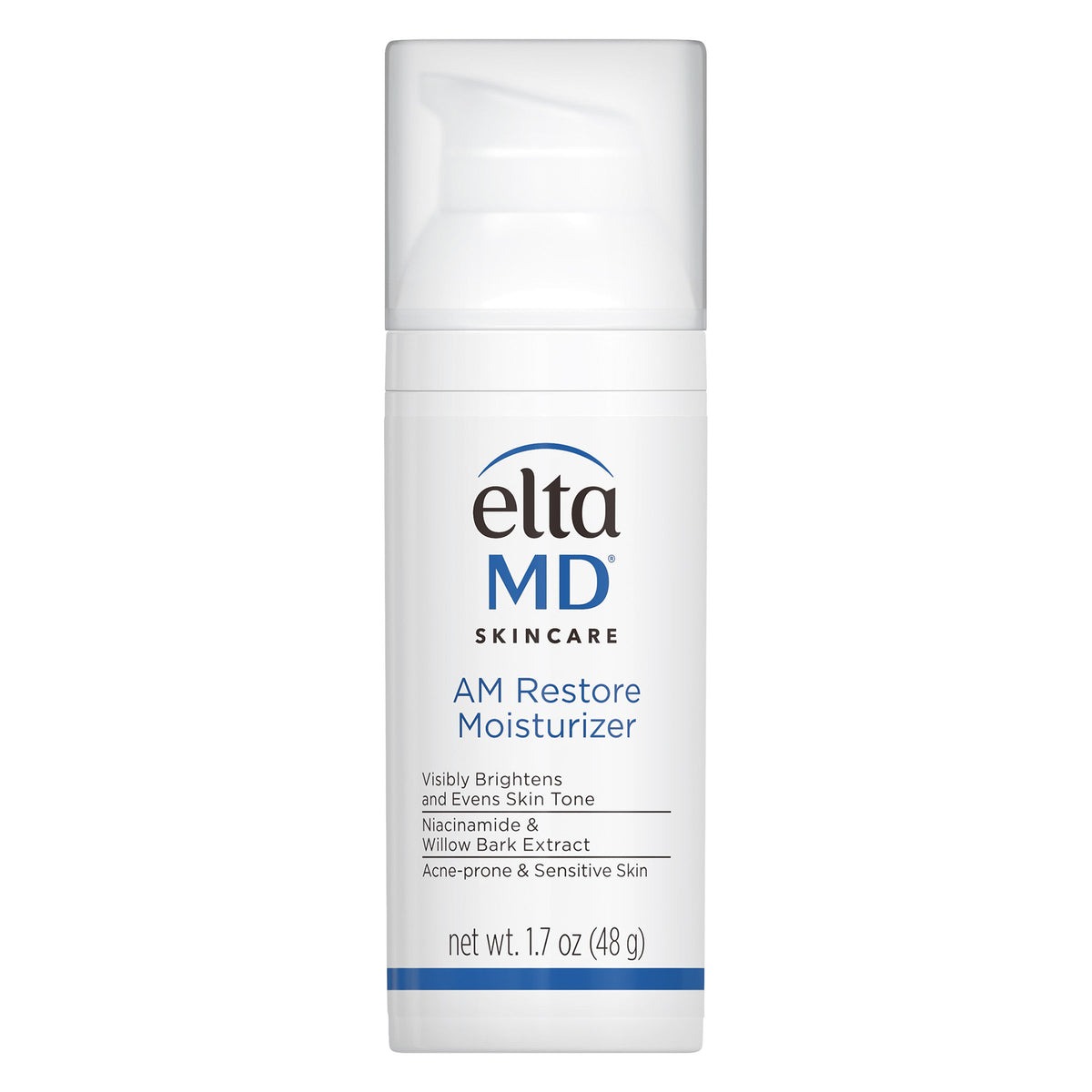
Using a rich yet lightweight moisturizer as part of my morning skincare routine is a must, especially when I have a moisturizer designed to deliver ample moisture all day. This one by EltaMD stands out because it uses a unique, cutting-edge formula that works to stimulate the skin's natural water system to deliver moisture without the help of oil or heavy emollients. It's also powered by hyaluronic acid, which increases moisture absorption and retention.
Customer Review: "I really love this moisturizer! The texture is light, it absorbs quickly, and doesn't leave any sticky residue. It keeps my skin hydrated all day without clogging pores or causing irritation. After just a couple of weeks, I noticed my skin looked smoother and more even in tone. It's perfect for morning use and works great under makeup. I'll definitely be repurchasing!"
Pros: Visibly brightens and improves skin tone
Cons: None
Size: 1.7-ounce bottle
Product Details: Oil-free, unscented cream
Best for Long-Lasting Results: Dermalogica Active Moist Moisturizer
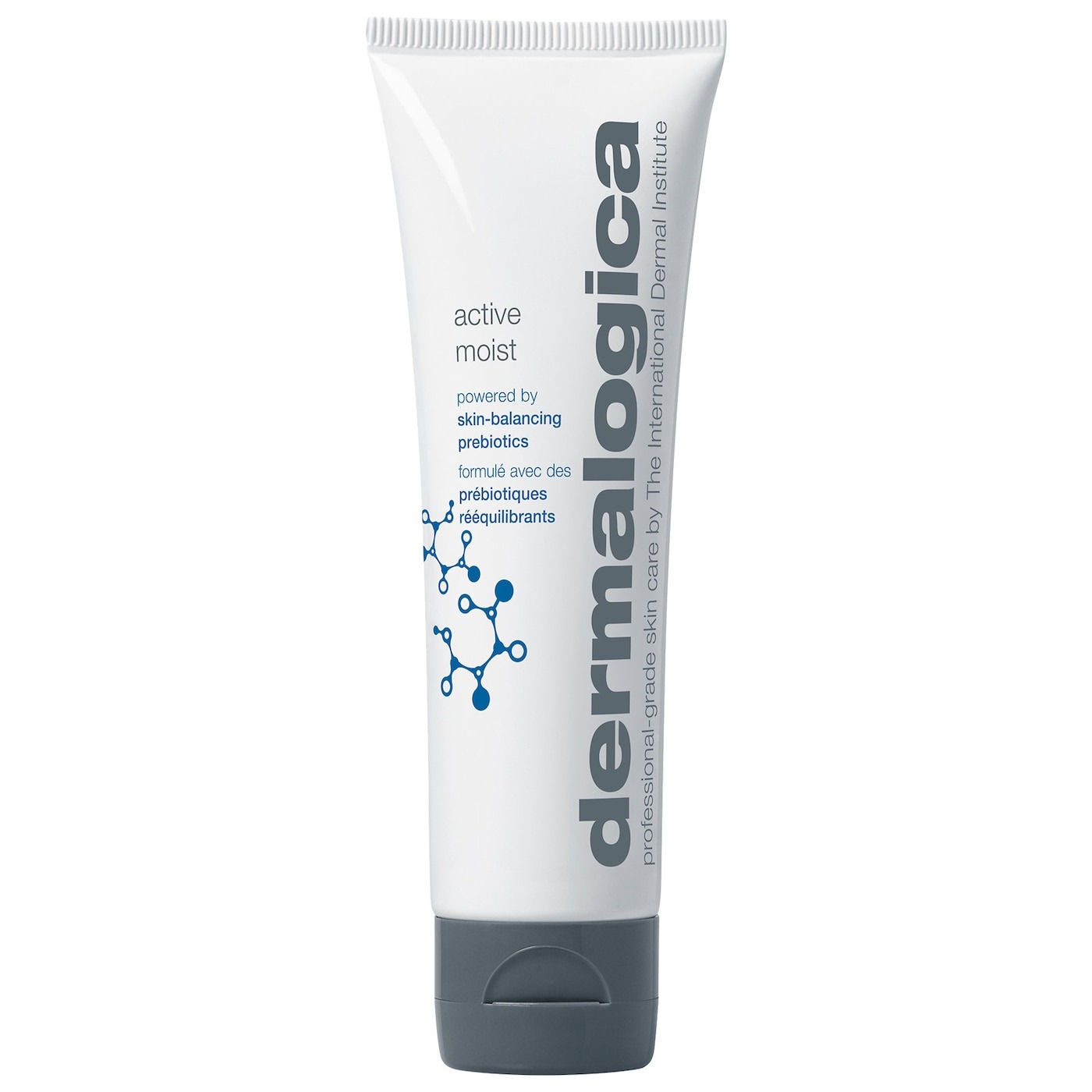
This hydration-boosting Dermalogica moisturizer is formulated with an oil-free prebiotic moisture complex, supporting the skin's microbiome with a wave of long-lasting hydration. The sheer facial moisturizer also includes a blend of lemon and burdock to visibly refine and smooth the skin texture and cucumber for even more hydration. It stands out to me because it applies smoothly and absorbs quickly without leaving behind a greasy look or clogged pores.
Customer Review: "I've been using this moisturizer for about a month and a half now and I love it! I'm a really oily person so this is perfect for my skin. It doesn't feel heavy and it actually penetrates the skin while not leaving a shiny film afterwards. Definitely buying again!"
Pros: Lightweight, hydration boosting, absorbs quickly into the skin
Cons: Not ideal for individuals who are sensitive to fragrance
Size: 1.7-ounce and 3.4-ounce tubes
Product Details: Oil-free, scented lotion

Best Clean Formula: Osea Seabiotic Water Cream
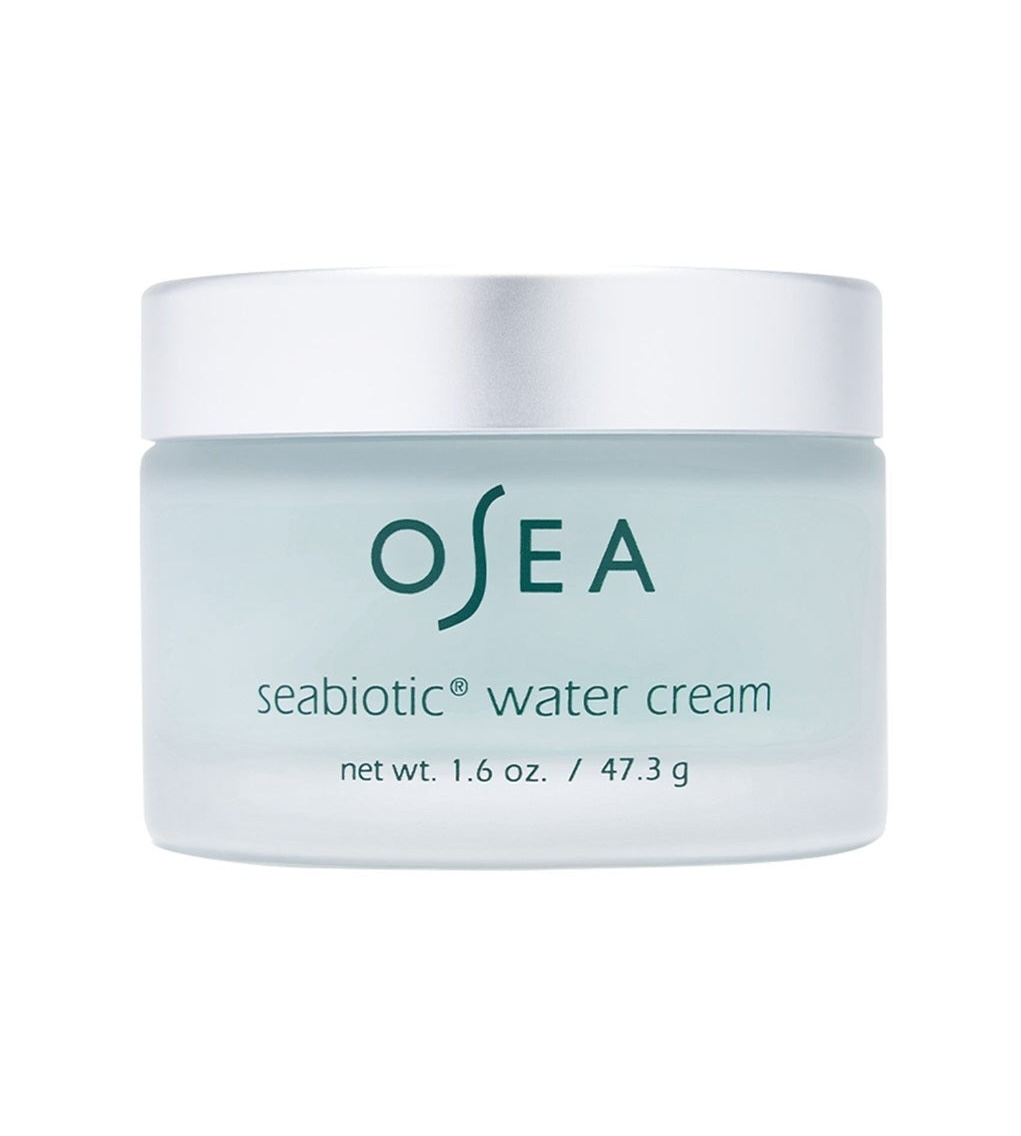
I discovered this noncomedogenic moisturizer during the early days of the COVID-19 pandemic, and it hasn't left my daily skincare routine since then. It became an instant favorite of mine because of its gentle and clean formula. It includes undaria seaweed (the brand's hero ingredient) to replenish the skin's moisture barrier and encourage a healthy-looking complexion, soothing bisabolol, and hydration-boosting squalane.
Customer Review: "I've been using this cream for several years now and I really like the way it feels and moisturizes my skin. It's not heavy or greasy feeling on your face, it really does a good job of moisturizing skin. I don't feel any stickiness either. A jar lasts almost a year, so it's worth the price."
Pros: Leaves the skin with a silky-smooth, dewy appearance
Cons: None
Size: 1.6-ounce jar
Product Details: Oil-free, unscented cream
Best for Restoring Plumpness: Shani Daren Skin Care Weightless Oil-Free Moisturizer
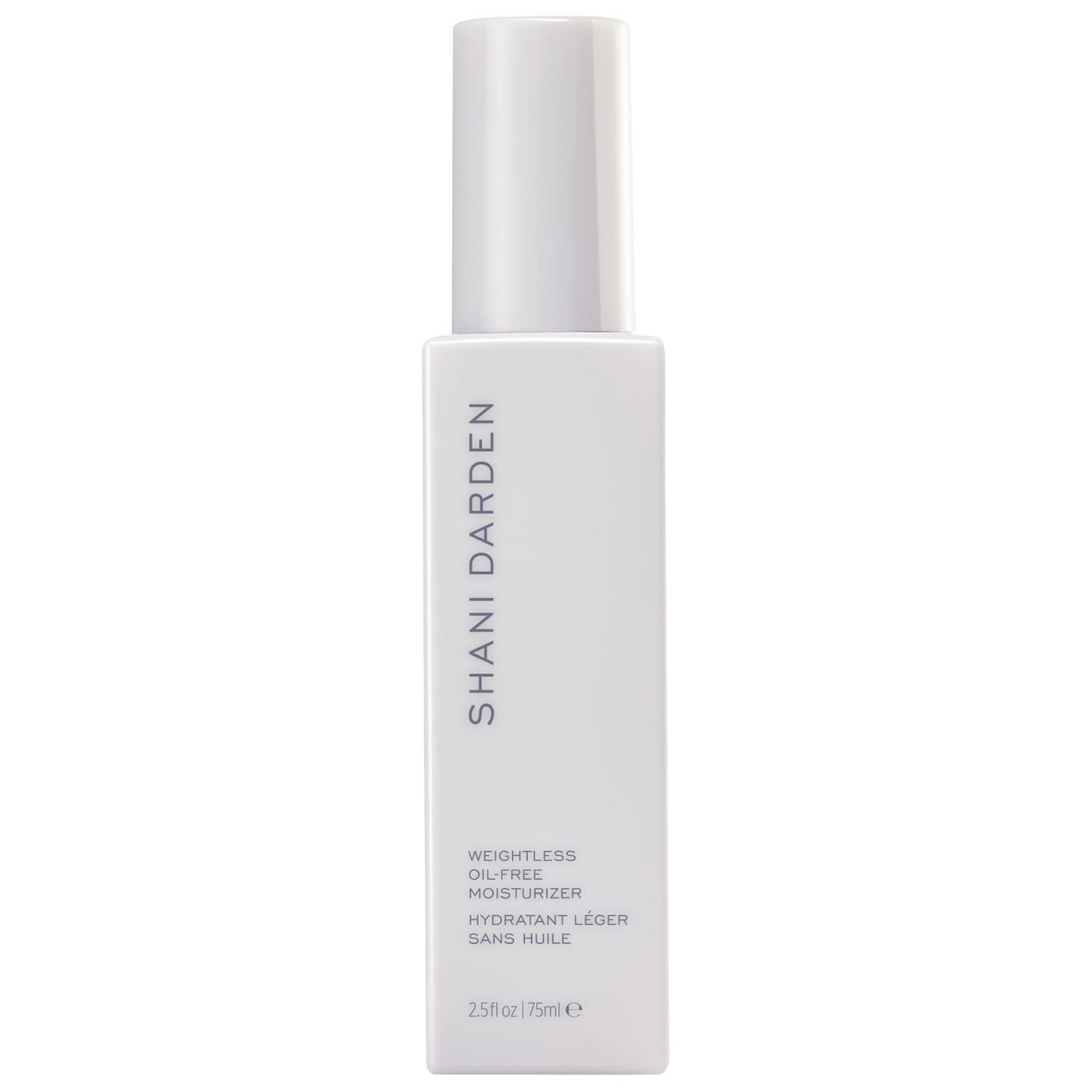
For anyone looking for an oil-free moisturizer on the richer side, the Shani Darden Weightless Oil-Free Moisturizer is one of the best options on the market. It provides up to 72 hours of moisture with a powerful mixture of peptides, hydrating Hydrosella, and skin barrier–supporting squalane to replenish and revive the skin barrier without causing congestion.
Customer Review: "This is an amazing moisturizer! It's perfect for helping your skin barrier with the ceramides and has a nice texture that really hydrates the skin amazingly. If you're using actives in your routine this is super helpful for making sure your skin barrier stays strong and plump. I definitely noticed less breakouts and overall skin bumps with this moisturizer since it helped repair my barrier and make it healthy again! This moisturizer isn't greasy and doesn't have any odd smells to it. I can definitely say this is one of my favorites!"
Pros: Supports healthy collagen production and skin elasticity
Cons: Offered at a moderate price point
Size: 2.5-ounce bottle
Product Details: Oil-free, unscented cream
Best Sustainable Design: Tata Harper Water-Lock Moisturizer
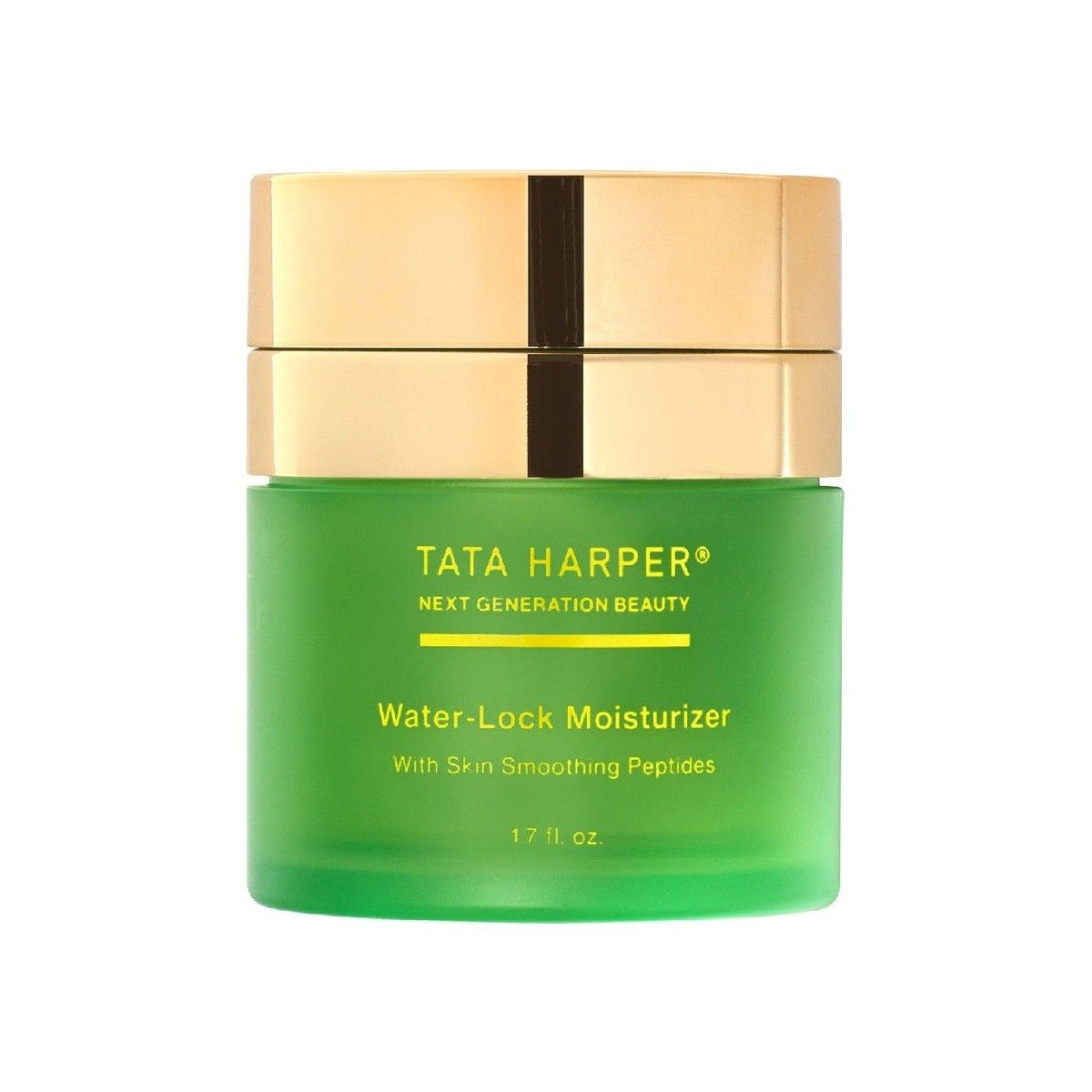
The luxurious Tata Harper Water-Lock Moisturizer uses natural peptides combined with hyaluronic acid, pomegranate spheres, and orange blossom peptides to address dullness, dryness, and uneven skin tones in all skin types, and it's especially useful for those with oily skin. It's designed with a sustainable refill system to reduce waste, so when you run out of the moisturizer in your first jar, you can easily replace it.
Customer Review: "Luxury in a bottle. This moisturizer feels incredibly hydrating without being too thick or greasy—it melts into the skin and leaves it feeling plump, smooth, and nourished. If you want that high-end skincare feel and results, this is it. My skin drinks it up."
Pros: Has a refillable design with pods that provide 30 days of hydration
Cons: Not ideal for individuals who are sensitive to fragrance
Size: 1.7-ounce jar
Product Details: Oil-free, scented cream
Best for Reducing the Appearance of Pores: Tatcha The Water Cream
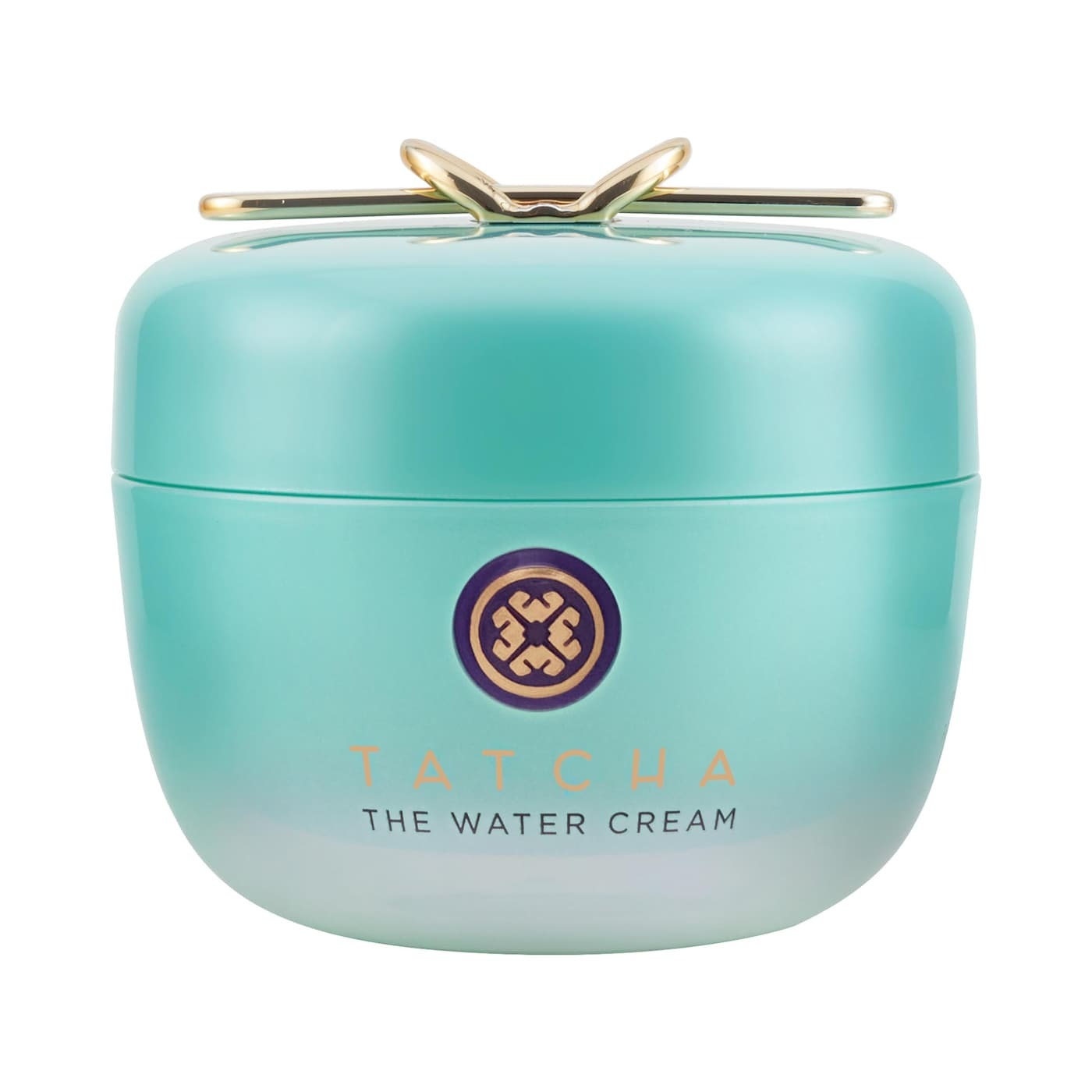
Here's another pore-minimizing, noncomedogenic moisturizer to try. This water cream is lightweight; gentle on all skin types; and formulated with multiweight glycerin, wild rose extract, heart leaf extract, a BHA alternative, and Hadasei-3. The unique formula smooths pores and addresses fine lines and wrinkles while also working wonders for boosting skin radiance and hydration.
Customer Review: "I have oily sensitive skin with visible pores. This improved my skin the same week I started using it. The water cream is light but still packed with moisture without feeling heavy. My skin is looking and feeling better than it ever has. This is also great under makeup."
Pros: Formula visibly refines clogged pores and smooths texture
Cons: Not ideal for individuals who are sensitive to fragrance
Size: 0.5-ounce, 1.69-ounce, 2.53-ounce jars
Product Details: Oil-free, scented cream
Best for All Skin Types: SkinCeuticals Daily Moisture
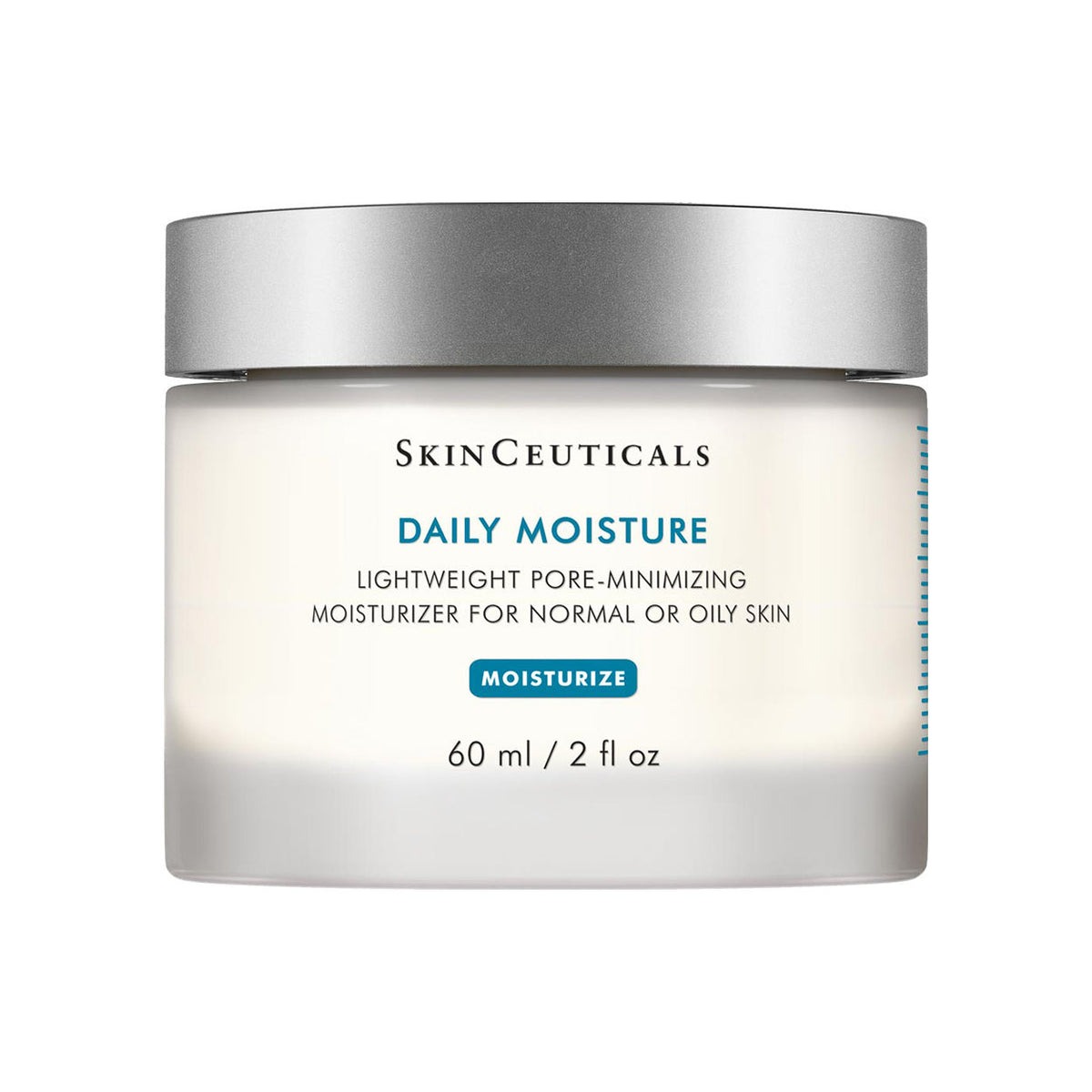
After identifying the size of my pores as something I wanted to combat in my skincare journey, I knew I had to test and review the SkinCeuticals Daily Moisture. It's formulated with a botanical mixture of burnet, cinnamon, and ginger to help the skin restore and maintain moisture. It also features pure vitamin E to protect the skin, white Brazilian sea algae to deposit proteins, and amino acids to deliver essential minerals.
Customer Review: "I've been using SkinCeuticals Daily Moisture for a few months now, and it's hands down one of the best moisturizers I've tried. It's lightweight, absorbs quickly, and leaves my skin feeling balanced and hydrated all day without any greasy residue. Perfect under makeup too. My pores look smaller, and my skin texture has noticeably improved. Definitely worth the price for the quality—a little goes a long way. Highly recommend for anyone with normal to oily skin!"
Pros: Formula protects the skin from environmental damage
Cons: Offered at a high price point
Size: 2.0-ounce jar
Product Details: Oil-free, unscented cream
Best for Reducing Irritation: Chantecaille Oil Free Balancing Moisturizer
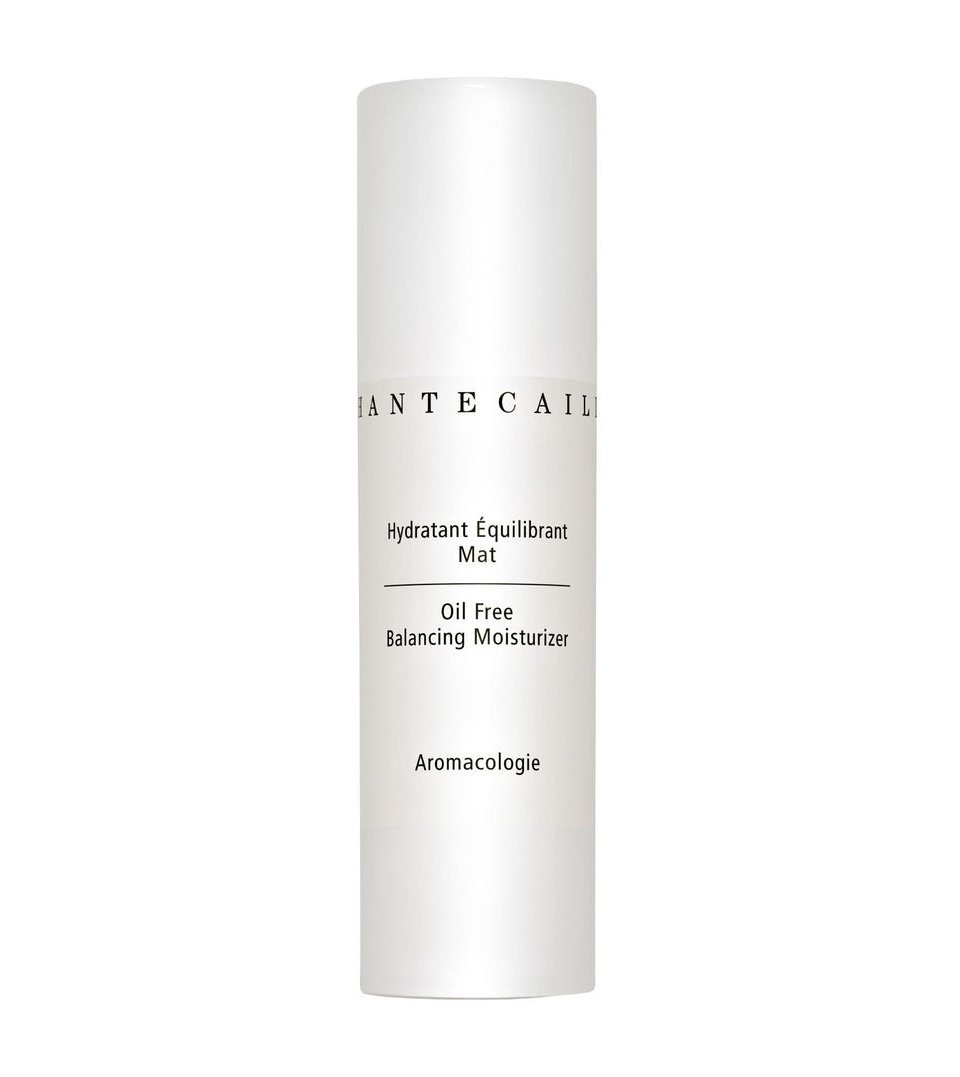
Chantecaille's Oil Free Balancing Moisturizer combines the powers of botanical extracts, marine postbiotics, and plant stem cell extracts to maintain and boost the skin's moisture. It works overtime to balance and soothe skin while reducing visible oil, refining the look of pores. I decided to round out my summer skincare routine with it and noticed how much brighter and more even-toned it looked in a few days.
Customer Review: "This lovely moisturizer is ideal for my combination skin, especially in the warmer months. It provides a lightweight feel and helps to reduce the look of oil, which my skin can be more prone to experience in the latter half of the day. I enjoy having this moisturizer at my disposal to be able to respond to my skin when the changing seasons."
Pros: Shrinks visible pores while also reducing redness and irritation
Cons: Offered at a high price point
Size: 1.7-ounce bottle
Product Details: Oil-free, unscented gel
Best for Protecting the Skin: Dr. Barbara Sturm Face Cream Light
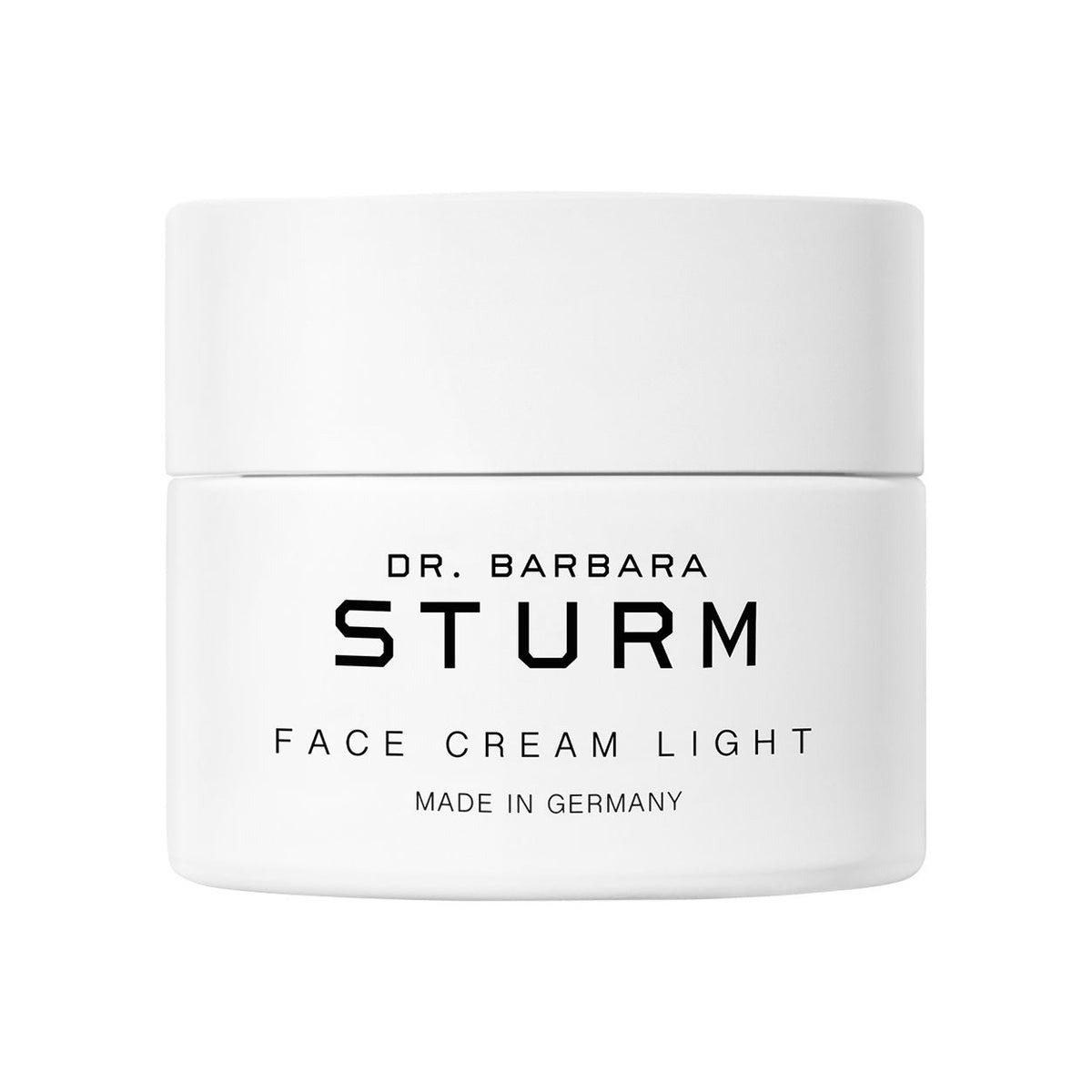
For a luxurious option that works like a charm, I recommend newbies add this one to their skincare lineup. The Face Cream Light is Dr. Barbara Sturm's lightweight moisturizer that uses purslane extract (the formula's key active ingredient) to deliver potent antioxidants such as bisabolol and panthenol to soothe and protect your skin. It also uses hyaluronic acid to keep the skin moisturized.
Customer Review: "After trying all her creams, this formula is my favorite for my skin type. I have combo skin and this doesn't leave my face looking greasy, it's absorbs completely and leaves my skin so hydrated without that extra glow. No fragrance which I love and I only need to use like a dime size amount for my entire face. My skin is so clear and this on top of her Hyaluronic Serum... OMG its magic. LOVE!"
Pros: Ideal for normal to oily skin and perfect for use during warm months
Cons: Offered at a luxury price point
Size: 1.69-ounce jar
Product Details: Oil-free, unscented cream
Why Trust Who What Wear
Since 2006, Who What Wear has been a digital fashion, beauty, and lifestyle publication and community where people can discover the latest brands, trends, and must-have products to help define and evolve their personal style. Think of Who What Wear as your most trusted style and shopping resource.

Maya Thomas is an Associate Beauty Editor at Who What Wear. Her strong love for all things beauty, interior design, and fashion stems from a strong childhood interest in the fine arts. During a gap year spent in Paris studying the history of French fashion, she shifted her focus to English literature and journalism as a student at Loyola Marymount University. After graduating in May 2021, Maya began freelancing for Parade.com as a contributing commerce writer. When she's not writing, Maya spends her free time catching up on reading, perusing art galleries, and enjoying a night out at the ballet every now and then.